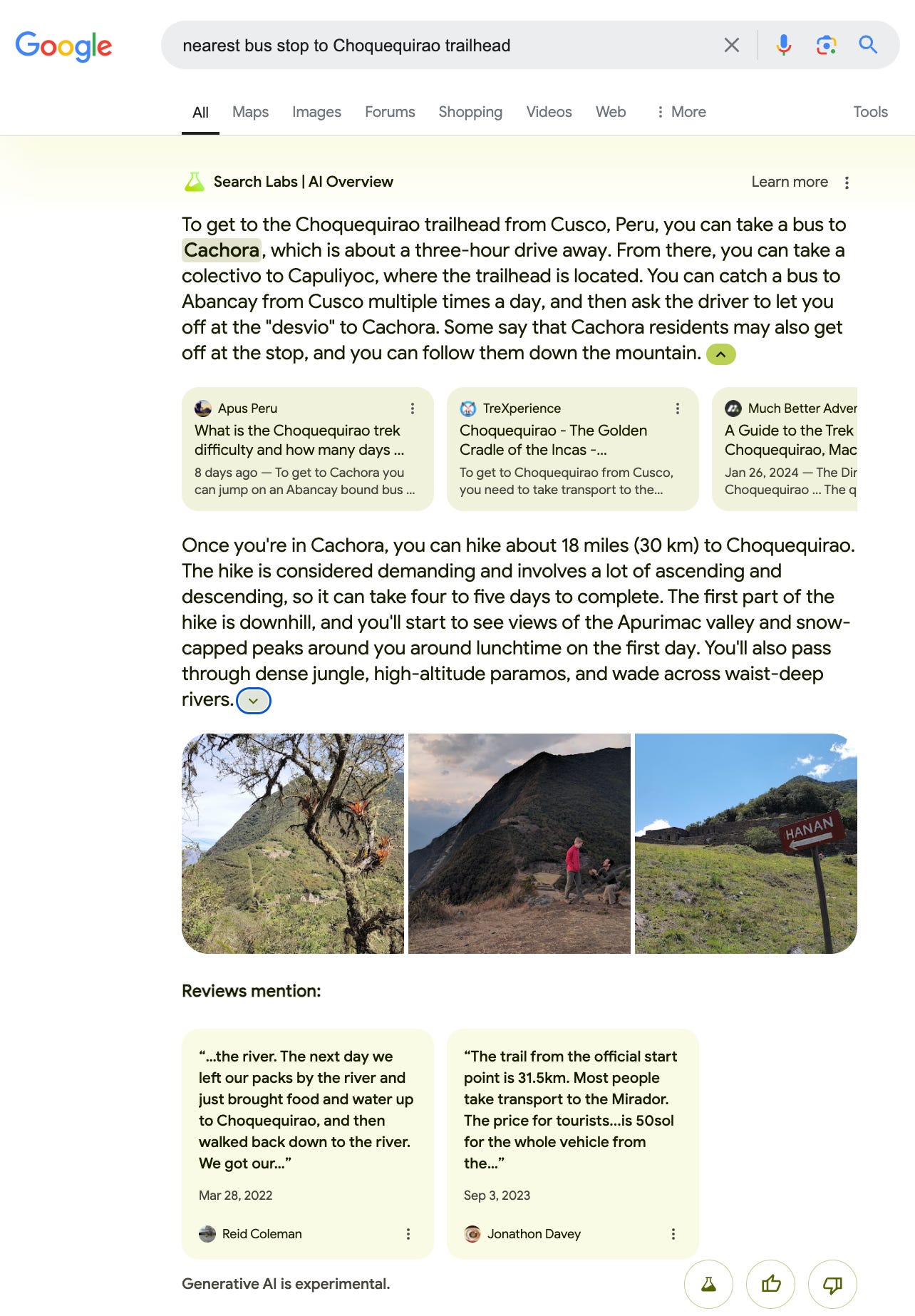The great unbundling
Generative AI's most transformative effect will be the unbundling of information from its original content.
“Information wants to be free.”
Corollary: Information evolves towards its most viral form.
Generative AI's most transformative effect will be the unbundling of information from its original content.
A brief history of unbundling
Innovation has driven many unbundlings. In the early 2000s, file sharing freed songs from albums, an obsolete constraint of physical media. Per-song, per-listen microroyalties on Spotify now shape both business and creative choices.
On-demand viewing did the same to TV, freeing shows from cable packages, and episodes from seasonal DVDs. News media has been unbundling for decades. We now read articles, not issues. TikTok’s algorithm has unbundled video information into ever shorter chunks.
Go back far enough far enough, and the printing press unbundled scripture from the Catholic Mass, with consequences.
Gen AI's ability to ingest multiple texts and synthesize answers will cause the greatest unbundling yet: information will be decoupled from its original content.
AI, the ultimate unbundler
Consider someone asking how tax loss harvesting works. Currently, you’d need to read several articles across multiple sources to gather context, find consensus, and assemble relevant facts. Search engines are just the starting point.
AI answer engines automate this process. Given a query, AI gathers, compares, extracts, and synthesizes for you. Humans no longer need to read content to obtain its information - a prospect that terrifies ad-dependent publishers, but presents the same opportunity streaming did for savvy musicians.
Just as bands no longer need to sell whole albums to reach listeners, content creators no longer need users to actually visit their sites or read entire articles. Information has never been more freely transmissible.
Google's recent highlighting of forum comments in search results exemplifies the shift. For niche queries like "nearest bus stop to Choquequirao trailhead1," AI can surface specific facts from forums, blogs, and reviews without users needing to read the entire posts they’re buried in.
Micropublisher microeconomics
Where this gets challenging (and exciting) is how content creation is incentivized and rewarded on the internet. I've written about usage-based microroyalties for content surfaced in RAG results. Perplexity recently announced plans for exactly that kind of revenue share with publishers.
Figuring out AI / publisher usage payments for content is digital media’s biggest issue right now, but it’s not the internet’s end state. AI unbundling makes it possible to reward individuals for the information in their content. Although direct traffic on websites will continue to decline, AI will access their information more deeply and more often.
Reddit now captures the information value in its UGC by restricting access to only paying API users. Yet Reddit’s also announced a creator incentive program. This is a hard product problem to get right: incentives increase engagement, but also distort it.
There’s potential for disruption. A community forum that shares revenue directly with its users when their posts are surfaced in AI could be a Reddit-killer. Discord has the most potential here.
Decentralized, platform-independent content creation and compensation sounds like the killer app web3 was waiting for, but realistically this will begin as expansions of creator partnerships on major UGC platforms like TikTok and YouTube.
What happens to publishers
Revenue has been shifting to content discovery over content creation for years. Publishers were slowly losing the game, but AI has flipped the table and scattered the pieces. Optimizing content for RAG is the new SEO, and its not winner-take-all. Competition between AI search engines means better revenue sharing terms for publishers in general, but only publishers that contain useful enough information will survive. LLM rerankers are not as easily tricked by keyword spam and clickbait.
Unbundling search
As AI inference moves to consumer devices, generation can be unbundled from retrieval. I expect we’ll spend less time looking at SERPs, and more time accessing RAG’d information through browsers, audio assistants, and indirectly through AI agents. “Headless” search deserves a post of its own, however.
A remote archaeological site in the Andes. In pre-AI days (2016) this query took me 20 minutes of cross-referencing Wikitravel with the handful of published blogs on the subject. Google’s AI overview correctly reports that there’s no official bus stop; you indeed have to tell the driver where to let you off.




Great article! Reminds me of an interesting concept I read about called Prism payments. Seems like something that could work to reward the original content creators anytime their work is used. https://dergigi.com/2023/03/12/lightning-prisms/